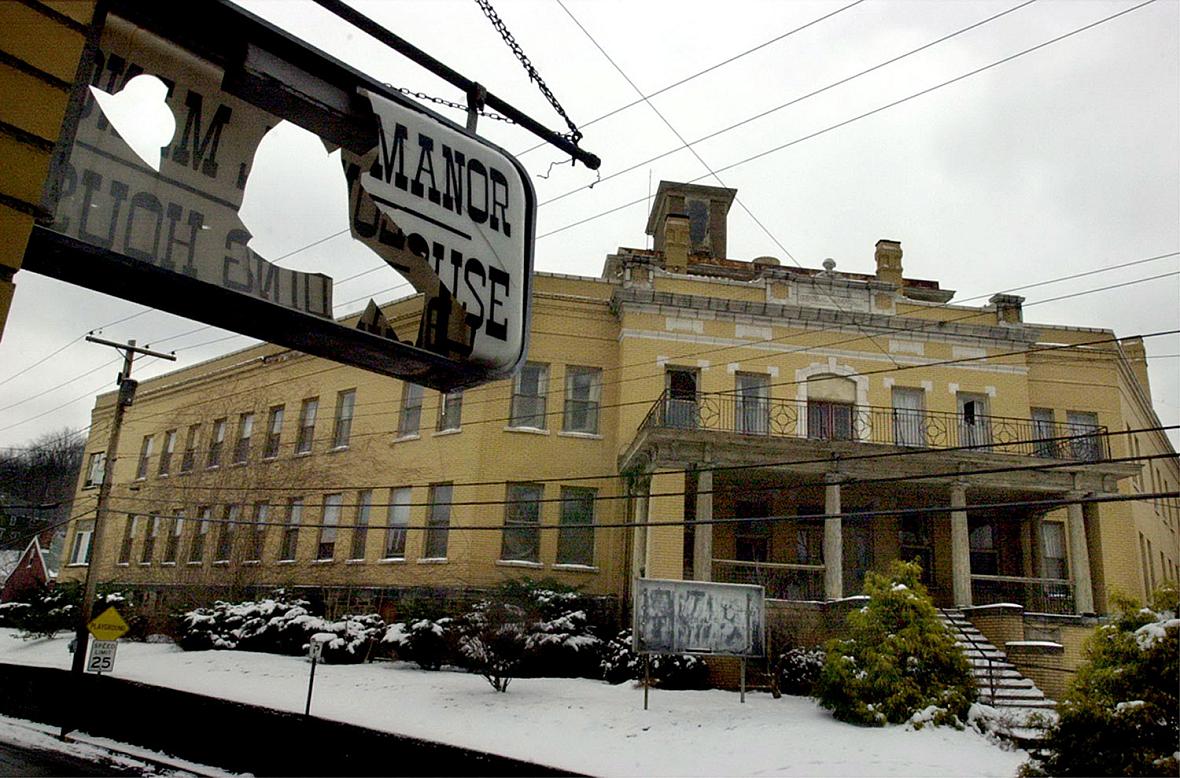Chapter 2: Poor Health: A frayed safety net
Sean D. Hamill wrote this report for the Pittsburgh Post-Gazette as a 2013 National Health Journalism Fellow and Dennis Hunt Health Journalism Fund grantee. Other stories in the series include can be found here.

Brownsville General Hospital, closed 2006
Health officials here and nationally argue that hospitals are fading as the main sources of medical care, and that as outpatient services increase, it's less important for patients to have a nearby hospital.
Karen Wolk Feinstein, president and CEO of the Jewish Healthcare Foundation in Pittsburgh, said the hospital closures were inevitable because of the loss of population and that they were a part of the evolution of health care.
"We were over-bedded [as a region] and they had to close," she said. "We need to find new models of care, and to do that you just can't keep all the beds going."
But as hospitals that disproportionately served the poor were closing, the region saw hundreds of millions of dollars poured into health care in wealthier communities.
Residents of older, declining towns like Jeannette, Bellevue and Braddock that had lost medical facilities watched as UPMC Passavant in the North Hills underwent renovation and expansion, UPMC East in Monroeville became the region's first newly created hospital in 40 years, and outpatient centers and medical malls began to appear in affluent areas (such as St. Clair Hospital's operation in Peters or Allegheny Health Network's in Pine).
Local officials paid attention to the expansions at other hospitals while theirs were closing, said Paul Cusick, former Bellevue mayor and vice president of the Suburban General Advisory Board. "But we were limited in our ability to change it," he said.
Bellevue was happy when it finally convinced the old West Penn Allegheny Health System, which closed Suburban General, to open an urgent care center at the old hospital.
"I believe it was the best we could get at the time," Mr. Cusick said. "But I'd be a lot happier if the hospital was still here. It was a small hospital, but we miss the personal care that you got in a hospital."
But most health systems that found money to invest in wealthier communities didn't marshal resources to serve the patients in the poorer communities that had lost hospitals, such as Aliquippa, Brownsville or Jeanette.
But UPMC ended the practice on March 1 this year, said Annie Hilliard, associate director of the revenue cycle
patient concierge service for UPMC, in recognition that the practice "hurt people who were trying to do it the right way" and pay their bills.
Like most local hospitals, UPMC also used to have a lengthy financial assistance application for uninsured patients.
"When I started in financial assistance in 2006, [the application] was 16 pages long," said Ms. Hilliard, who said it "absolutely" was a barrier to care.
Ed Kelly, a retired physician who has been medical director of Catholic Charities Free Health Center since it opened in 2007, said he began complaining to UPMC about the form shortly after the health center began operations.
The form was so long that patients sometimes would simply give up and go without the financial assistance, Dr. Kelly said, which often meant going without health care.
Ms. Hilliard said she worked to streamline the form, "And every year since then we've tried to reduce it."
It is now two pages long, standard in the region.
Even a shorter form, though, doesn't make it possible for everyone to get charity or discounted care at UPMC or anywhere else.
UPMC McKeesport, for example, operates in the Monongahela Valley where as much as 65 percent of the population lives below the poverty line.
In 2007, one of its family physicians there, Bill Markle, started the 9th Street Free Clinic in a former McKeesport YWCA because he simply could not provide all the care to the poor who were showing up at his office.
"We'd know what to do for people [at his UPMC office] but we couldn't do it because they couldn't afford it," he said. "And when we opened [the free clinic] there was such an onslaught of people who had not had care in a long time."
This article was originally posted in the Pittsburgh Post-Gazette

